RPO vs. Traditional Recruitment: Key Differences and Advantages
- AESC

- Apr 14, 2025
- 3 min read

In today’s fast-paced business environment, the quest for top talent has never been more critical. Companies are constantly seeking innovative ways to streamline their hiring processes and secure the best candidates. Two popular approaches to recruitment are Recruitment Process Outsourcing (RPO) and traditional recruitment methods. While both aim to fill positions with qualified candidates, they differ significantly in their approach, efficiency, and overall effectiveness. Let’s dive into the key differences and advantages of RPO versus traditional recruitment.
Understanding the Basics
Traditional Recruitment typically involves a company managing its hiring process in-house or working with a recruitment agency on a per-hire basis. This method often includes posting job ads, screening resumes, conducting interviews, and negotiating offers. While this approach allows for direct control over the hiring process, it can be time-consuming and resource-intensive.
Recruitment Process Outsourcing (RPO), on the other hand, involves partnering with an external provider to manage all or part of the recruitment process. RPO providers take on the responsibility of sourcing, screening, and onboarding candidates, allowing companies to focus on their core business functions.
Key Differences
Control vs. Collaboration: Traditional recruitment offers companies more control over the hiring process, as they manage every step internally. In contrast, RPO fosters collaboration between the company and the provider, leveraging the provider’s expertise and resources to enhance the recruitment process.
Scalability: RPO is inherently more scalable than traditional recruitment. Companies can easily adjust the level of service based on their hiring needs, whether they are ramping up for a new project or scaling back during slower periods. Traditional recruitment often lacks this flexibility, making it challenging to adapt to changing demands.
Cost Structure: Traditional recruitment typically involves fixed costs associated with job postings and agency fees per hire. RPO, however, often operates on a subscription or performance-based model, which can lead to cost savings in the long run, especially for companies with high turnover rates or frequent hiring needs.
Technology Integration: RPO providers often utilize advanced recruitment technologies and analytics to streamline the hiring process. This can include applicant tracking systems, AI-driven candidate sourcing, and data analytics to improve decision-making. Traditional recruitment may not always leverage these technologies, leading to inefficiencies.

Advantages of RPO
Access to Expertise: RPO providers specialize in recruitment and often have a wealth of industry knowledge and best practices. This expertise can lead to better candidate matches and improved hiring outcomes.
Time Efficiency: By outsourcing the recruitment process, companies can significantly reduce the time-to-hire. RPO providers have established processes and resources that allow them to quickly identify and engage top talent.
Enhanced Candidate Experience: RPO providers focus on creating a positive candidate experience, which can enhance a company’s employer brand. A smooth and engaging recruitment process can attract higher-quality candidates and improve retention rates.
Data-Driven Decisions: RPO providers utilize data analytics to track recruitment metrics, providing valuable insights into the hiring process. This data can help companies make informed decisions and continuously improve their recruitment strategies.
Conclusion
In the battle of RPO vs. traditional recruitment, it’s clear that RPO offers distinct advantages in terms of efficiency, scalability, and expertise. As businesses continue to evolve and adapt to new challenges, the need for a streamlined and effective recruitment process becomes paramount. By considering RPO, companies can not only enhance their hiring strategies but also position themselves for long-term success in attracting top talent.
At Allied Executive Search Consultants, we understand the complexities of recruitment and are here to help you navigate the landscape. Whether you’re looking to implement RPO or enhance your traditional recruitment efforts, our team of experts is ready to partner with you to find the best candidates for your organization. Let’s transform your hiring process together!





Comments